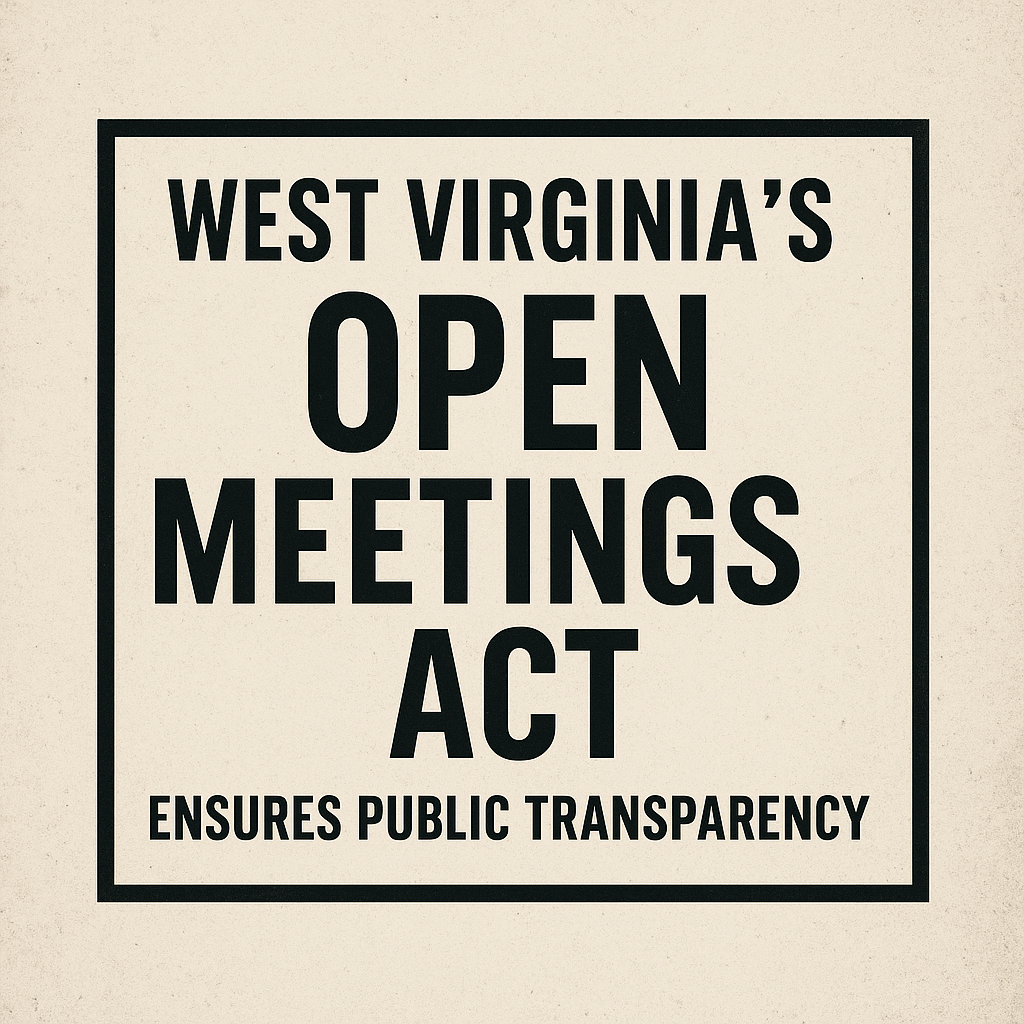Government doesn’t work in the dark—at least, it’s not supposed to.
That’s why the West Virginia Open Governmental Proceedings Act, more commonly known as the Open Meetings Act, exists. This law ensures that citizens have the right to know when, where, and how their government is making decisions that affect their lives.
And in a time when public trust is fragile, compliance with this law matters more than ever—especially for local boards, commissions, councils, and agencies right here in Clarksburg.
What Is the Open Meetings Act?
Codified in West Virginia Code § 6-9A, the Open Meetings Act requires that all meetings of public bodies be open to the public, unless a very specific and legally valid reason exists for closing them.
It applies to:
- City councils
- County commissions
- School boards
- Utility boards (like the Clarksburg Water Board)
- Committees and subcommittees with decision-making authority
What the Law Requires
The core requirements of the law are simple:
- Advance Notice: Meetings must be announced publicly in advance with the time, date, place, and a written agenda.
- Clear Agendas: Items listed must be specific enough for the public to understand what will be discussed or acted on.
- Open Meetings: Citizens have the right to attend and observe unless the meeting legally qualifies for executive session.
- Public Voting: Any decision, vote, or action must happen in public view, not behind closed doors.
- Meeting Minutes: Records of what happened must be kept and made available to the public.
Executive Session: What Is (and Isn’t) Allowed
While some matters can be discussed in closed session, the law is very strict about when and how that can happen.
Permitted reasons include:
- Personnel issues (e.g., hiring, firing, discipline)
- Legal strategy in active litigation
- Property negotiations
- Certain matters of public safety
However, the body must:
- Vote publicly to go into executive session,
- Cite the specific legal reason, and
- Describe the topic with enough clarity that the public can understand the general nature of the discussion.
Vague phrases like “personnel,” “employee matters,” or “pending litigation” without any detail are not sufficient under the law.
Why It Matters
This law isn’t just about legal compliance—it’s about trust. When decisions are made without transparency, people lose confidence in their institutions. Open meetings are how we prevent backroom deals, favoritism, and avoidable errors.
Local boards should not just aim for technical compliance—they should strive for active transparency. When agendas are vague or executive sessions are overused, it leaves the public wondering: What are they hiding?
What You Can Do
Citizens can—and should—play a role in keeping government open:
- Attend public meetings
- Ask for copies of agendas and minutes
- File public records requests (Freedom of Information Act)
- Speak up if a meeting appears to violate the law
- Report suspected violations to the WV Ethics Commission
A Simple Reminder
Sunshine laws exist because government belongs to the people—not behind closed doors, but in the light.
The Open Meetings Act is not a suggestion—it’s a legal obligation. And every official, whether elected, appointed, or hired, should treat it as such.
I am annoyed and about to start reporting violations, you should too as citizens.
By Gary Keith | Clarksburg News and Observer
Lead Water Lines in Clarksburg WV: A Forgotten Crisis – Clarksburg News And Observer



